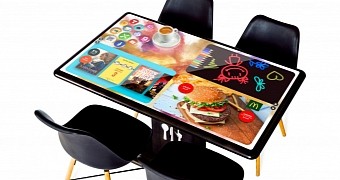Microsoft flooded us with Windows 10 news at this year’s edition of the Build developer conference, and one of the announcements concerns the IoT version of the operating system, which the company is working on at full speed to add new features and support for more tech.
Today, for instance, Redmond has revealed that Windows 10 IoT is supported by the full lineup of Intel processors, which means that you can install it on devices powered by the slowest Intel chip, but at the same time, you can also run the operating system on a system equipped with the super-powerful Intel Core i7.
Improved Intel support
At this point, Windows 10 IoT Core is already supported on Baytrail, Apollo Lake, and Joule, and starting an undisclosed date in the future, support for Cherrytrail and Braswell will also be available.
“Windows 10 IoT Core will be supported across Intel’s full range of processors moving forward, including the Core, Pentium, Celeron and Atom lines. This is a great expansion of our existing SoC support, which will now range from a Qualcomm Snapdragon 212 all the way to the top-end Intel Core i7,” Microsoft said in the announcement today.
Other new features prepared for Windows 10 IoT include support for Azure IoT Device Management and the upcoming Azure IoT Hub Device Provisioning Service. “This makes it easier to provision a connected device via Azure IoT services, leveraging Windows IoT TPM based security,” Microsoft points out.
Digital assistant Cortana, which has become one of Microsoft’s priority features in everything Windows 10, is available for developers who want to integrate it into their devices. Cortana, however, is offered only in a number of countries, though Microsoft is working to expand support for more regions and languages.
And last but not least, there’s support for Device Guard for IoT, a feature that substantially boosts security by allowing only OS components and code signed by the OEM.

 14 DAY TRIAL //
14 DAY TRIAL //